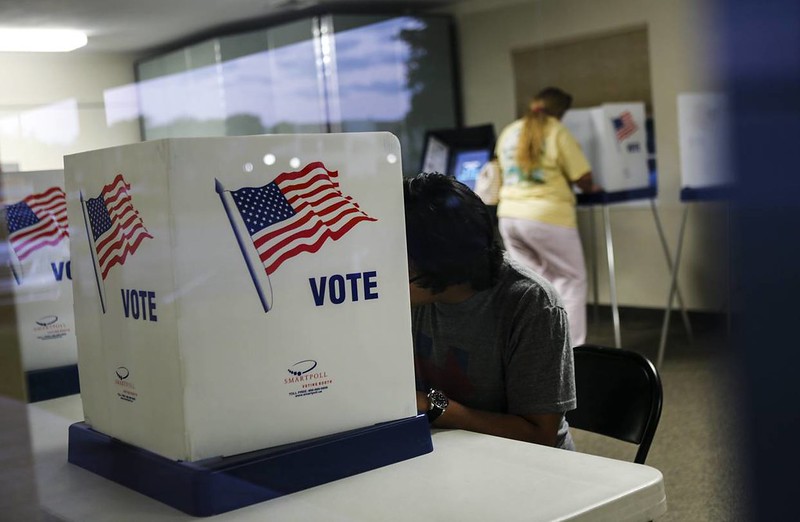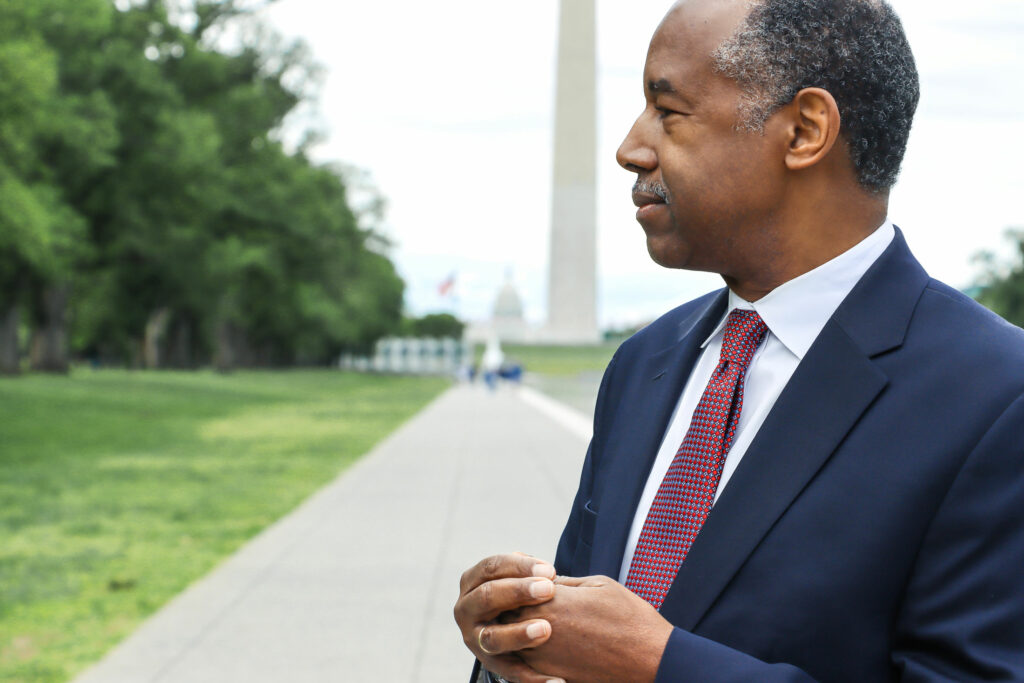 After widespread irregularities in the 2020 presidential election and problems in the 2022 midterms, Americans are rightly concerned about the integrity of our electoral process.
After widespread irregularities in the 2020 presidential election and problems in the 2022 midterms, Americans are rightly concerned about the integrity of our electoral process.According to polling data, only 42 percent of Americans have confidence that our elections truly reflect the will of the people — that’s less than half! A full 61 percent of voters who identify as Republicans do not think President Joe Biden won the 2020 election fairly, and almost half of all Americans think that in the next few years, it is at least somewhat likely that elected officials will successfully overturn the results of an election because their party did not win.
Luckily, there are steps that can be taken to reverse these trends. Article 1 Section 4 of the Constitution vests state legislatures with the power of prescribing the “times, places, and manner” of conducting elections. However, in both 2020 and 2022, we saw unelected bureaucrats, state supreme courts, local administrators, and more usurp this power from state legislatures and throw out the previously-established rules for conducting elections—almost exclusively to the benefit of the left.
In order to restore integrity to our electoral process, state legislatures must reassert their constitutional power over the electoral process and pass measures to ensure our elections are conducted properly, free from fraud, and reflect the will of the American voter. Below are recommendations on the types of reforms that could help rebuild trust in America’s election system:
- End universal mail-in voting.
- Under the guise of the COVID-19 pandemic, universal mail-in voting became the norm for our elections. Previously, mail-in voting was generally only permissible if one offered a good reason, such as a genuine health issue or disability, or military deployment that precluded them from going to the polls on election day. The 2020 election did away with that standard, leaving our elections vulnerable to the fraud accompanying mail-in elections. State legislatures should move to restrict mail-in voting to those who have a well-documented medical reason or other compelling interest in voting via mail and require the vast majority of citizens to vote in person.
- Vote, and count the votes, on election day only.
- In America, we used to have “election day.” Now, it’s election week or even election month. One problem with the massive expansion of early voting is that sometimes things can happen later in a campaign, such as a health issue or subsequent information, that would make one want to change their vote. When huge percentages of votes are cast well in advance of the election, voters do not yet have the complete picture of their options. Similarly, when election results are not counted immediately and are slow-dripped to the public, it raises significant questions about where outstanding votes will be “found” and numerical breakdowns of which candidate needs how many votes to win. State legislatures should move to restrict voting to a single election day and mandate that all votes are counted that night in order to reduce fraud, rather than conducting voting for a range of time somewhere before the election and having a slow trickle of “ballot dumps” to be counted over the course of November (and beyond).
- Put strict voter ID laws in effect.
- The typical charge from the left is that voter ID laws are racist and designed to suppress the voices of different minority groups. This couldn’t be more absurd. We require identification to drive cars, purchase alcohol, board a flight, and numerous other things in America today. It is ridiculous to think that a common-sense measure like voter ID has racist intentions. Instead, voter ID is an essential step to ensuring that only eligible citizens can cast a ballot, prevents fraud, and safeguards voter confidence. Nearly 80 percent of Americans are in favor of enacting voter ID laws. Since the Supreme Court held that requiring photographic voter identification to vote did not violate the Constitution, many states have implemented voter id requirements and provide free identification to their citizens. Without stringent voter ID laws, there is no way to ensure that illegal votes are not being cast. Voter ID laws are essential in determining that only legal votes are cast in our elections.
- Require signature verification for all processed ballots.
- It only makes sense that every ballot mailed in must be cross-checked with the information the state has on file for the person submitting the ballot, including the signature. State legislatures should mandate that all votes received undergo “signature verification,” either by humans or electronically (with reasonable parameters), which would require a comparison between the signature on the ballot to the one the state has on file. This will help reduce fraudulent ballot submissions and ensure that every vote is filled out by the individual allowed to do so.
- Update the voter rolls in every state.
- The voter rolls should be routinely updated, and state legislatures should act to ensure this is the case. This will help prevent things like double voting or individuals voting in states where they aren’t citizens. This will also help eliminate all the instances of dead people remaining on active voter rolls and ensure that only legal and registered citizens can cast a ballot.
- End electronic voting machines and hand count paper ballots.
- Electronic voting machines have been plagued with numerous problems in the last two election cycles. Not only are they vulnerable to hackers and malicious foreign and domestic actors, but they are also subject to the same issues as other forms of technology. Software glitches, power outages, and more can corrupt voting procedures and disenfranchise voters. Similarly, electronic voting systems do not offer a reliable paper trail to quickly trace where things went wrong. State legislatures should return to reliable, simple, hand-counted paper ballots as standard election protocol.
- End ballot harvesting.
- Ballot harvesting, or the practice of one individual collecting any number of mail-in ballots and delivering them to a drop box, is ripe for fraud and must be immediately restricted. Ballot harvesting allows individuals, often campaign staffers, activists, or political consultants with no connection to the voter, to pick up ballots across the community and deliver them in drop boxes. This is problematic for a few reasons. First, it allows individuals to target areas that may heavily tilt one direction politically, so by offering this service in some places and not others, it can artificially manipulate turnout rates. Similarly, people could collect ballots from areas they know will be on the other side politically and then fail to deliver them to the drop box. Ballot harvesting could also allow individuals to procure fraudulent ballots or fill them out for others but still evade detection because it can be impossible to trace who dropped off the ballots, where, and when.
- Routinely audit elections.
- States should fall into the custom of routinely conducting audits of their elections, mainly when those races are tight. This will help improve transparency for the citizens, ensure that processes are sound, and help ensure that documents and data from each election cycle are preserved. Too often today, data like voter rolls, ballot registrations, a chain of custody documentation, and more are discarded or not even kept in the first place, which renders it impossible to verify electoral results. Regular audits will ensure the preservation of this critical data and help improve transparency for the American people.
- Restrict the use of private funds in elections.
- There was an era when the left was concerned about the undue influence of big money in our elections, but those days are over. For example, in 2020, Mark Zuckerberg, through the Center for Tech and Civic Life, gave over $350 million in grants to certain counties across 49 to help them run their elections. Unsurprisingly, these dollars were politically targeted to boost turnout in blue voter strongholds. This funding played a significant role in ensuring states like Michigan, Pennsylvania, and Wisconsin went to a particular candidate in the 2020 election. State legislatures should ban private funding in election day operations to prevent such undue influence from tainting our elections ever again.
As conservatives, we believe every legally cast vote must be counted. By participating in the democratic process, we are exercising our fundamental right of self-government. Elections should be mechanisms to hold politicians accountable and give the American people a voice on which direction they want to take the future of their country.
But that also means that every instance of voter fraud, every illegally cast ballot, and every violation of election rules and procedures undermines the entire concept of self-government. Every illegally cast vote cancels out the rightful vote of an American citizen and strikes a blow to the integrity of the democratic process in a very real way.
Today, we know it doesn’t take much to swing an election. Many races are decided by less than .5 percent—which comes down to one out of 100 ballots. It doesn’t take much in terms of fraud to make up that small a margin, and elections can easily be manipulated with a paper-thin percentage of overall ballot totals.
Other nations have taken these lessons to heart. For example, in France (a nation with about 67 million people, which makes it significantly larger than the largest U.S. state) voters must show a photo ID before casting their vote on a paper ballot, which is later hand-counted by volunteers. Furthermore, French citizens do not have the option of absentee or early voting. All the way back in 1975, France actually banned mail-in voting due to fears of election fraud, and in 2008 they discontinued the use of machine voting because of the major security concerns that accompanied the machine systems. The French government knew that in order to guarantee the integrity of their election system, these were the steps they had to take.
When Benjamin Franklin left the Constitutional Convention in 1787, a woman standing outside famously asked him what type of government had been set up. Ben Franklin’s famous reply — “a republic, if you can keep it,” — serves as both a promise and a reminder: the system of government we inherited is a fundamental part of making us the greatest nation on earth, but it is up to each and every one of us to defend the values we believe in and work to keep it that way.

